FORT LEAVENWORTH, Kan. (May 28, 2009) - Although Maj. Will Bowman appreciates the 25-year history of School of Advanced Military Studies, for him SAMS represents a very real and necessary preparation for his fourth deployment to combat terrorism.
Bowman, who graduated SAMS on May 21 with his 106 classmates, will go to Fort Campbell, Ky., for his next assignment to the 5th Special Forces Group.
"All the commanders have high expectations for us," he said. "The theory here is practical. You can take what you've learned and apply it immediately."
Students graduating from the School of Advanced Military Studies are the type that retired Lt. Gen. James M. Dubik would trust enough to hold the final piece of his family's crystal set. Dubik, himself a SAMS graduate, passed around a glass to graduating students during his speech to demonstrate the burden students will bear upon completion of the course.
All 106 students passed the glass without breaking it. Dubik said while the glass is important to his family, what SAMS graduates and faculty members represent to the future of the Army is much more important.
"It's the future of our profession and our service to the nation," he said. "So I challenge you, graduates and faculty members, dare to be the great men and women that we need and dare to go beyond conventional wisdom, to identify what we must reform and what we must conserve."
Dubik drew on the wisdom of Ralph Waldo Emerson's lectures on reformation, conservation and "the great man" or woman, as Dubik pointed out.
"(Emerson) tells us the great person does something new when something new is required," he said. "That the great person is a model for the rest of us, a connection to something greater than what is. The great person transcends traditional wisdom. A great person, according to Emerson, is infectious, he ignites others to follow."
Dubik said although Emerson doesn't say it, a good leader knows when to conserve and when to reform. SAMS role as an institution is to make sure the Army has a resource of good leaders.
"The Army, like the other services and agencies, needs a great institution to increase the probability that a great person will arise when the nation needs him or her," Dubik said. "The great institution will help develop a set of leaders, not a single leader, who collectively, not individually, will be able to think through the fog of the future and not only describe what the Army and other services should reform and conserve, but explain why."
Retired Brig. Gen. Huba Wass de Czege, SAMS first director and creator, said he appreciated Dubik's insight of graduates having the wisdom to know when to reform and when to conserve. He said although accountants could measure the value of SAMS' cost in dollars, they could never measure the institution's true value to the Army.
"That's the enduring value offered," he said. "It teaches you never to be satisfied with the best idea you now have, but to keep testing it and improving it."
Dubik said throughout SAMS history, there has been contention about how the school is structured - such as whether the Army should train tactical planners or produce holistic leaders in the Emerson tradition who can think through the future.
"This is a very healthy tension, one which cannot be solved at any time," Dubik said. "It's a necessary tension, for if you choose either extreme, the institution will fail. It's the right mix that counts, and it's the right mix that results from a constant argument that counts."
A day before graduation, SAMS invited past and current military education professionals, including several retired general officers, for a panel discussion about the school's curriculum and leader development. With the school's expansion, a few expressed concern over the quality of students and seminar leaders from joint services and international military organizations.
Peter Schifferle, director of the Advanced Operational Art Studies Fellowship program, defended his student fellows. The AOASF is a two-year senior service college-level course that prepares future colonel-level commanders and operational planners for assignments to critical staff positions within combatant and service component commands. Graduation from the AOASF is considered equivalent to a war college education.
"The quality of the seminar leaders is as high as it's ever been," he said. "I've seen them since '97. I would put these leaders up against any seminar leaders we have."
As far as the quality of Army majors attending the Advanced Military Studies Program, Schifferle conducts about half the interviews to screen incoming students and has not seen any reduction in quality students at SAMS, he said.
Col. Stefan Banach, current director of SAMS, said a design course provides students with a way to think, not how to think. Complex war theories, from Carl von Clausewitz to thinkers in the 21st century, are included in the curriculum.
"It's an incredibly powerful course," Banach told panelists. "The level of their learning and their level of learning and level of progression in practical application in these skill sets has gone vertical for us. It's been remarkable just to watch as this curriculum is developed how much better prepared these students are to handle the problems we give them."
Banach noted that SAMS students must have recent combat deployments to qualify for entrance into the school.
During the graduation ceremony, Candace Hamm, office manager, was honored for her 21 years of service to SAMS.
Schifferle said Hamm was a staple of the institution.
"She's the heart and soul of SAMS," he said. "For the last 21 years, she's been the godmother of all the SAMS graduates."
This year's best monograph award was given to SAMS graduate Maj. Derek Jones for his work, "Understanding the Form, Function and Logic of Clandestine Cellular Networks: The First Step in Effective Counternetwork Operations."
Lt. Gen. William B. Caldwell IV, commandant of the Command and General Staff College and commander of the Combined Arms Center, is also a SAMS graduate. In a letter to alumni, current students and past and present faculty, Caldwell congratulated SAMS on its 25th anniversary.
"I am confident the school will continue over the next 25 years and beyond to provide a great education and experience for the future leaders of our armed forces, our allies and the interagency," he wrote. "Ultimately, the results these future leaders produce will continue to shape the school's standing."
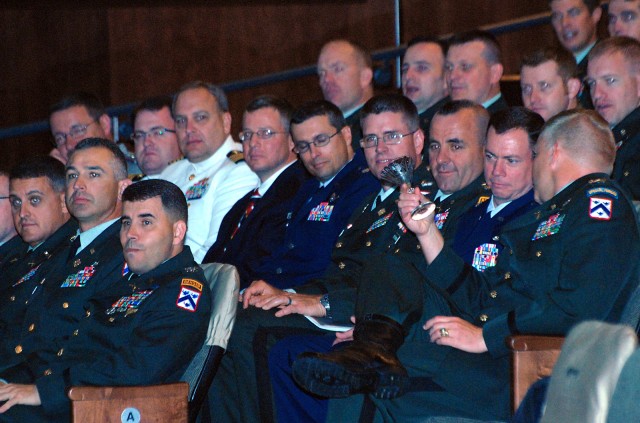
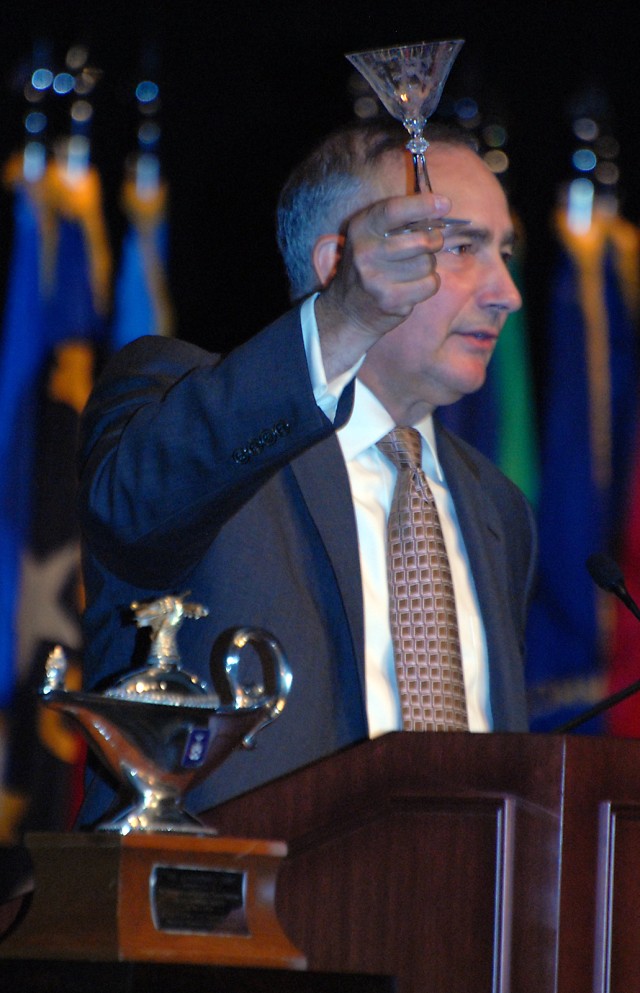
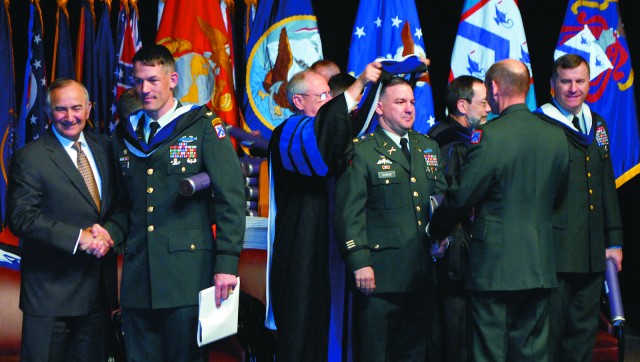
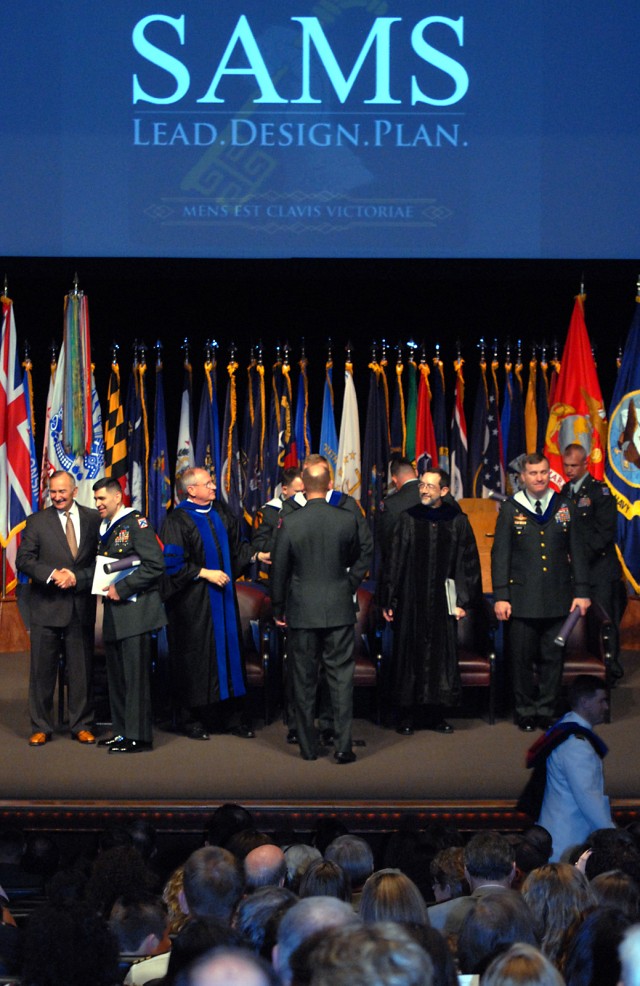
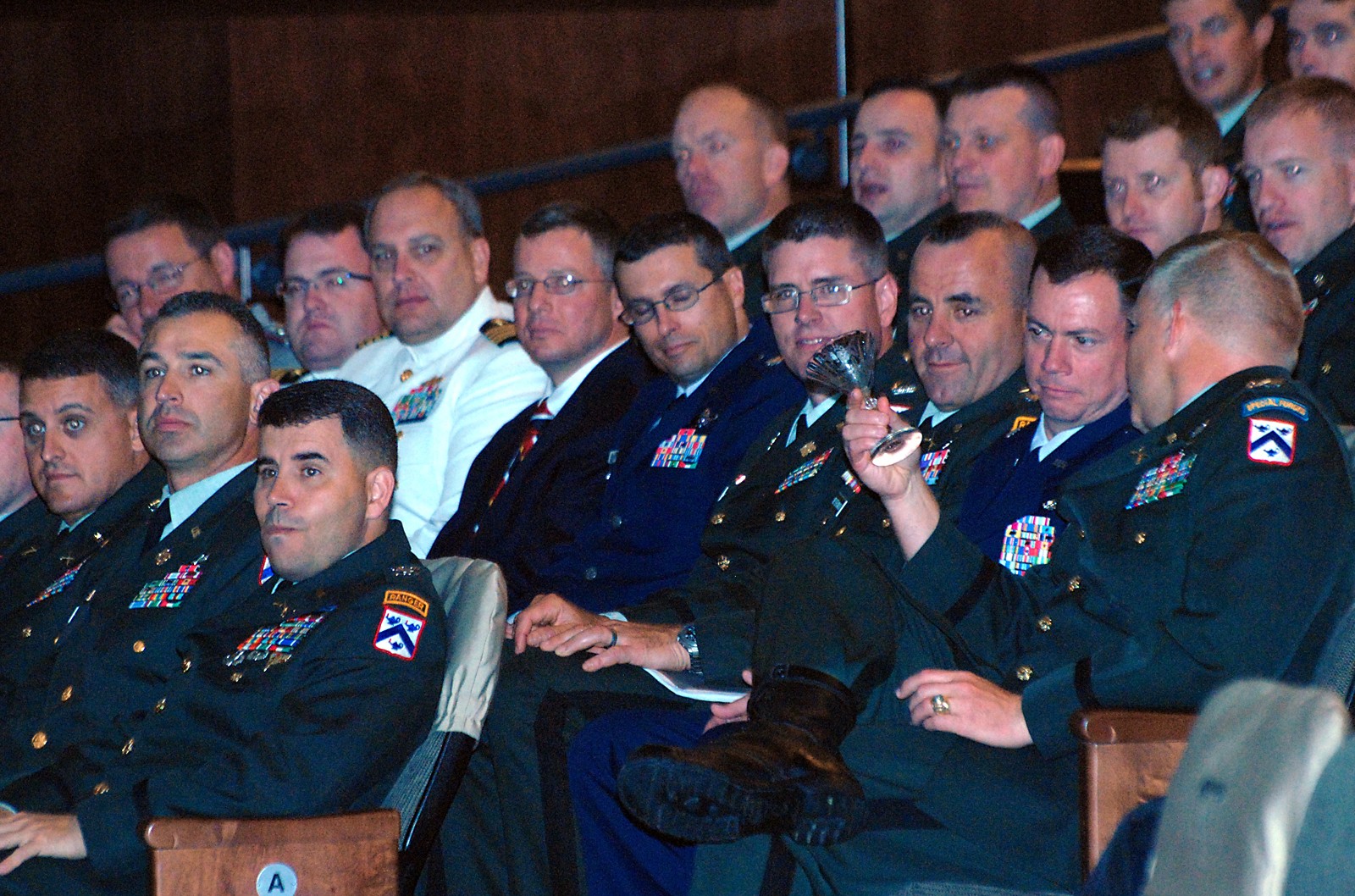
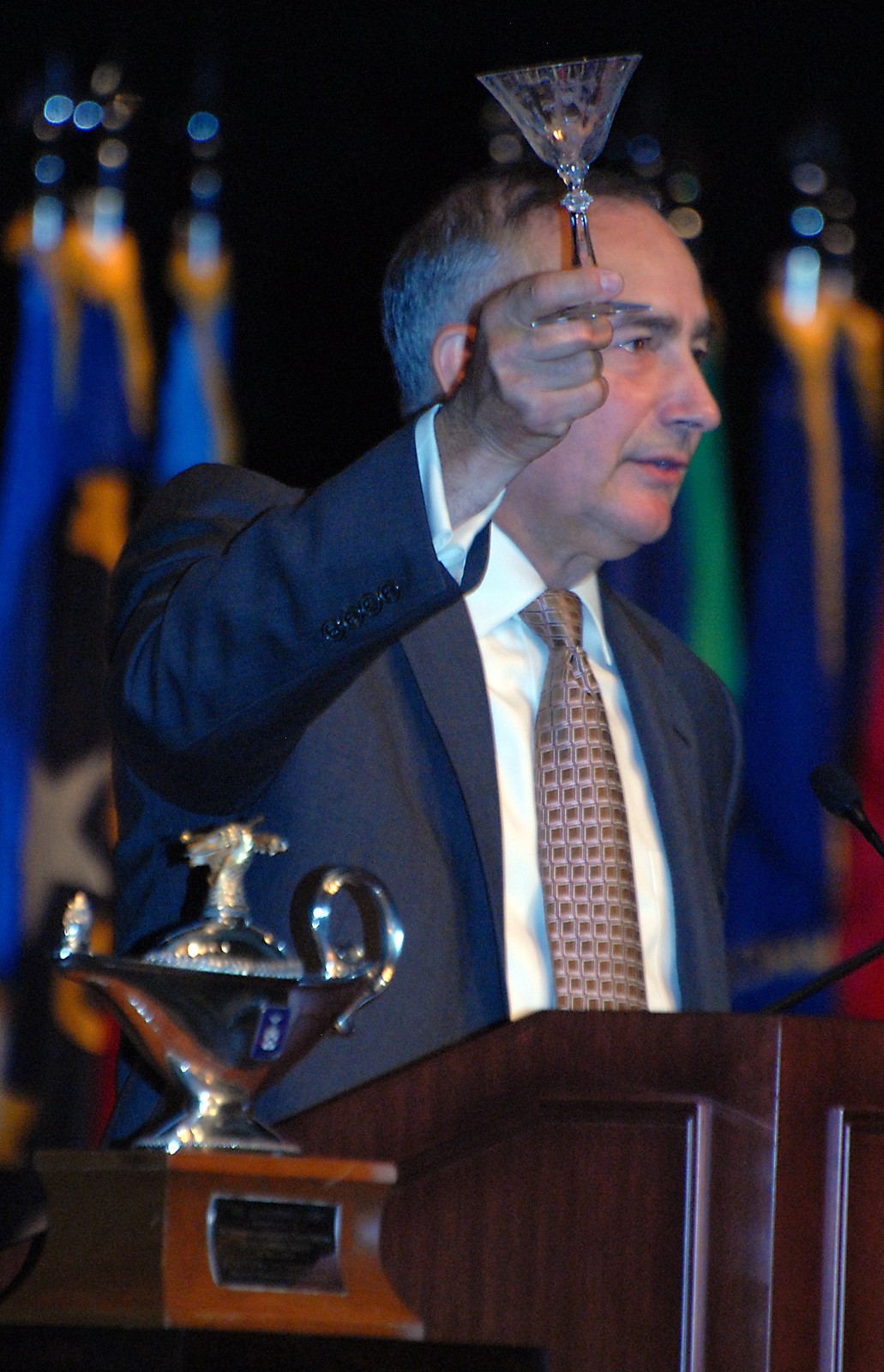
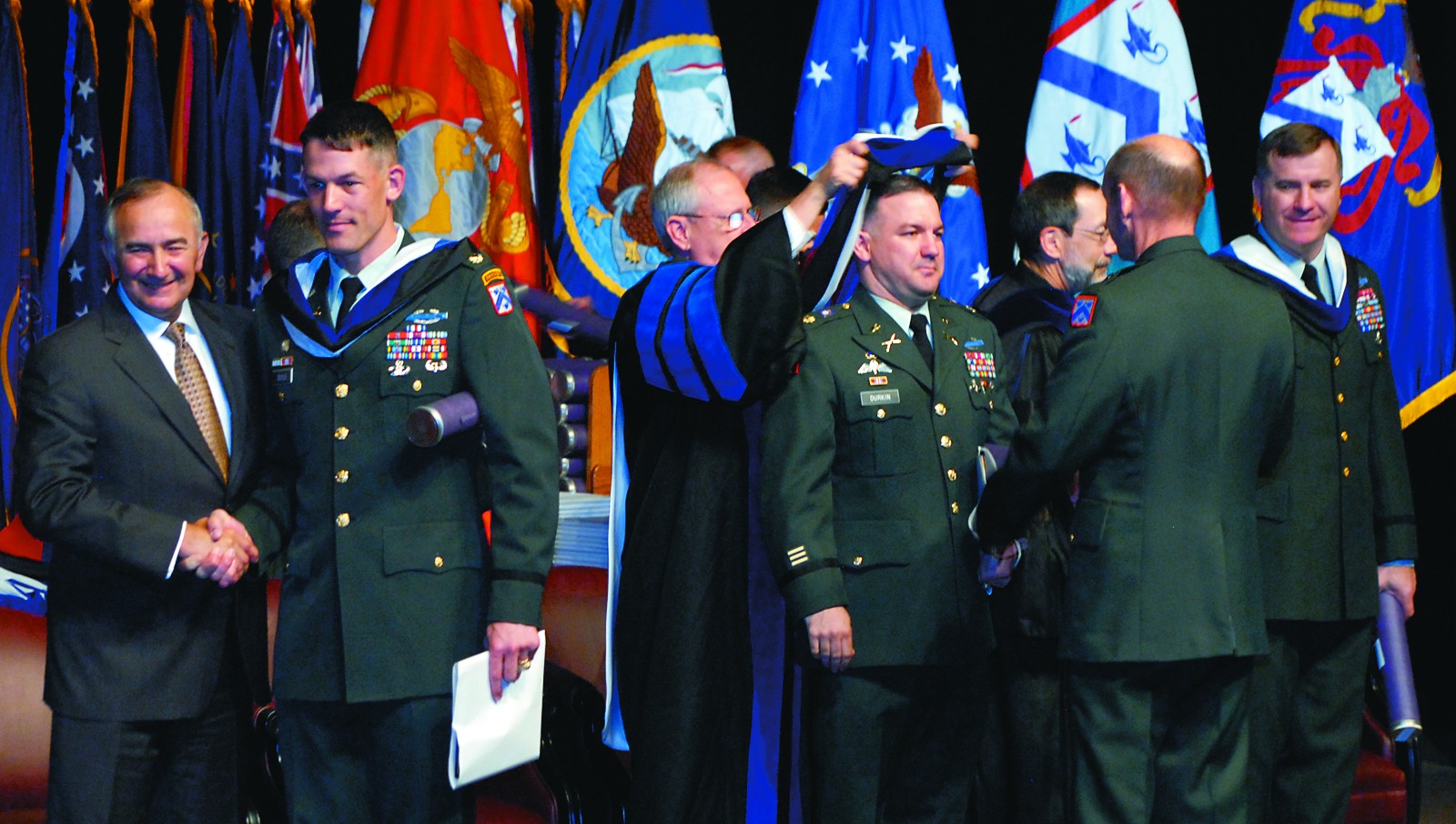
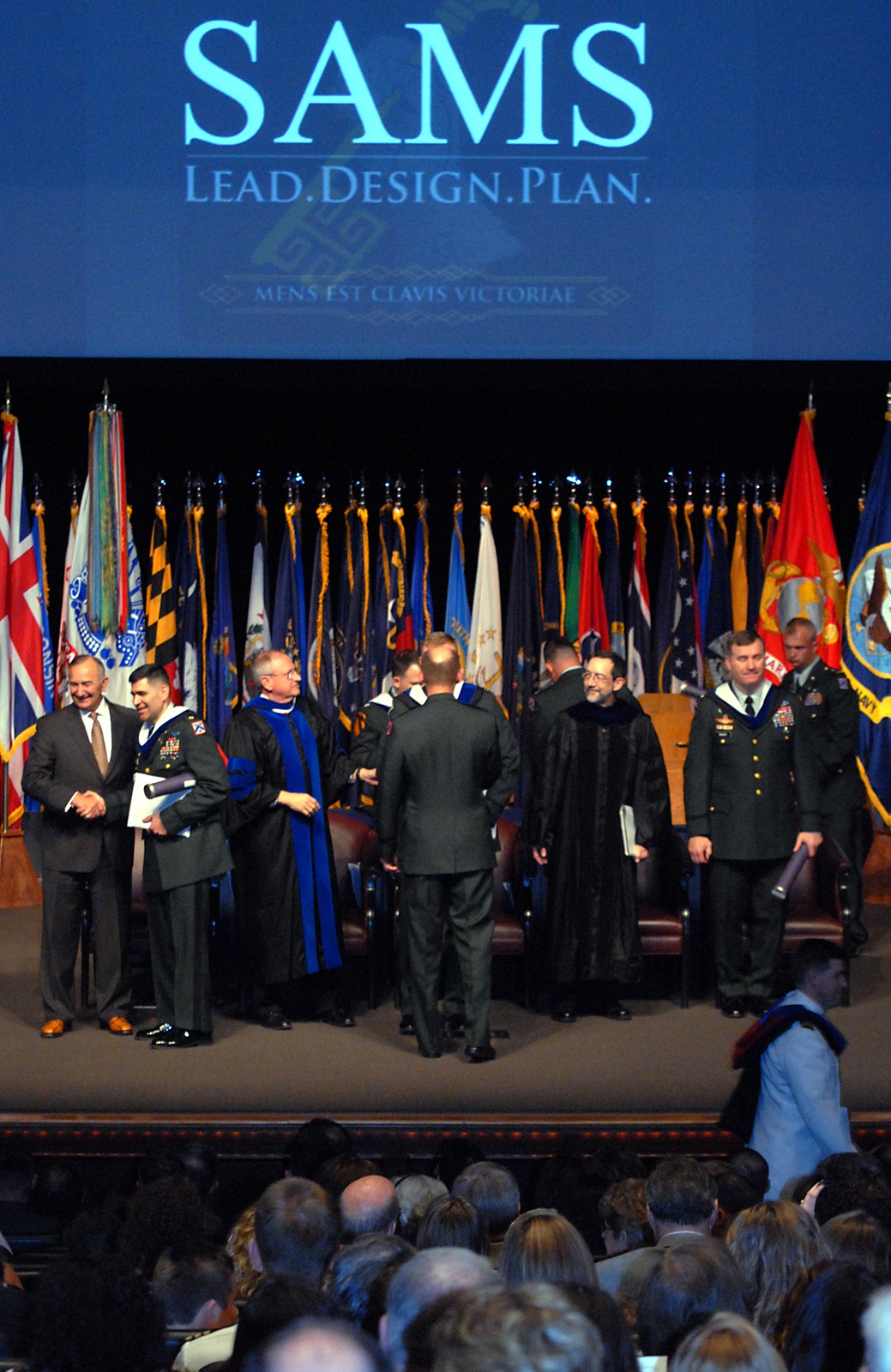
Social Sharing